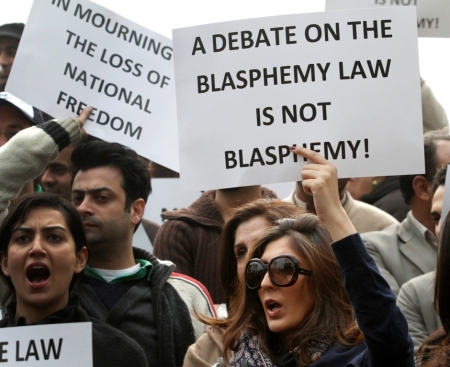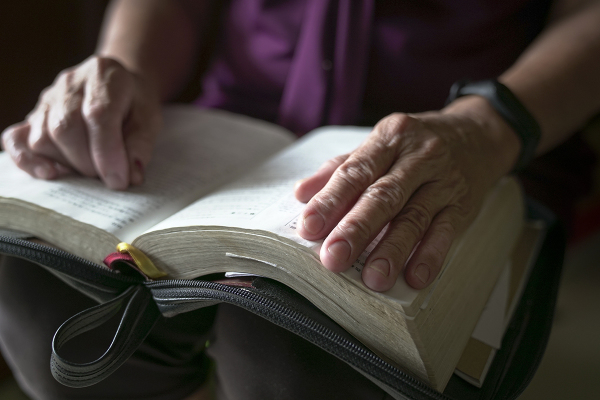Pakistani Christian man sentenced to death for blasphemy against Islam

A Pakistani court has sentenced a Christian man to death for sending “blasphemous” text messages to Muslim clerics, according to a report.
The Lahore High Court in Punjab province has revised the 2013 sentencing of the Christian man, Sajjad Masih, from life in prison to death, according to UCA News.
Masih, a Seventh-day Adventist, was accused of sending blasphemous text messages from a mobile phone to Muslim clerics and others in Gojra. The 2013 verdict included life imprisonment and a fine of 314,500 rupees, the equivalent of about $2,000.
Masih, a resident of Punjab's Pakpattan district, was arrested in December 2011.
Police said Masih was engaged to a woman, Ruma Masih of Gojra town. But she contracted marriage with another Christian man in the United Kingdom. Masih is accused of using her SIM to send blasphemous messages to clerics as an act of revenge.
Gojra has been a religiously sensitive area since massive attacks on Christians were triggered by reports of Quran desecration. In 2009, there were a series of riots targeting Christians in Gojra that resulted in eight deaths, including four women and a child. Muslim radicals reportedly set fire to Christian homes in the area.
Police initially refrained from charging Masih under the blasphemy law but added the blasphemy charge to the complaint after pressure from Muslim clerics.
Section 295-C of Pakistan’s penal code permits the death penalty for those convicted of insulting Islam or its Prophet Muhammad. International advocates have long called on Pakistan to reform its penal code as it is often used to persecute religious minorities.
In 2015, Masih’s brother and nephew were reportedly attacked and threatened by a group of people who had not been identified.
A Muslim advocate, Zeeshan Ahmed Awan, celebrated the decision to give Masih the death sentence.
“Honorable Lahore High Court has accepted our prosecution argument that ‘capital sentence is the only possible sentence in blasphemy, and imprisonment for life, though provided in [the law], awarded by a trial court, is illegal,” the lawyer wrote on Facebook.
Masih’s appeal, in the meanwhile, has been sent to the court’s division bench.
The blasphemy law, embedded in Sections 295 and 298 of Pakistan's penal code, is frequently misused for personal revenge. It carries no provision to punish a false accuser or a false witness of blasphemy.
Islamic extremists also use the law to target religious minorities — Christians, Shias, Ahmadiyyas and Hindus.
A Lahore-based group, Centre for Social Justice, recently reported that 200 people were accused of blasphemy in 2020 — the highest number of cases in a year. In total, the group reports that at least 1,855 people have been charged under Pakistan’s blasphemy laws since 1987.
A Pakistani Christian, Shahbaz Bhatti, who served as minister of minority affairs, was assassinated in March 2011 after calling for the blasphemy laws' repeal. Former Punjab Gov. Salman Taseer was also assassinated for his opposition to the country’s blasphemy law. Both men advocated for Christian woman Asia Bibi, who had been sentenced to death for blasphemy. She was acquitted years later by the Pakistan Supreme Court.
Lisa Curtis, the former senior director for South and Central Asia at the U.S. National Security Council during the Trump administration, warned at the U.S. State Department’s Ministerial to Advance Religious Freedom in 2019 that there are more people imprisoned for blasphemy in Pakistan than all the other countries in the world combined.
Pakistan, a Muslim-majority country, ranks as the fifth-worst in the world when it comes to Christian persecution on Open Doors USA's 2021 World Watch List. The State Department lists Pakistan as a “country of particular concern” for tolerating or engaging in egregious violations of religious freedom.






















